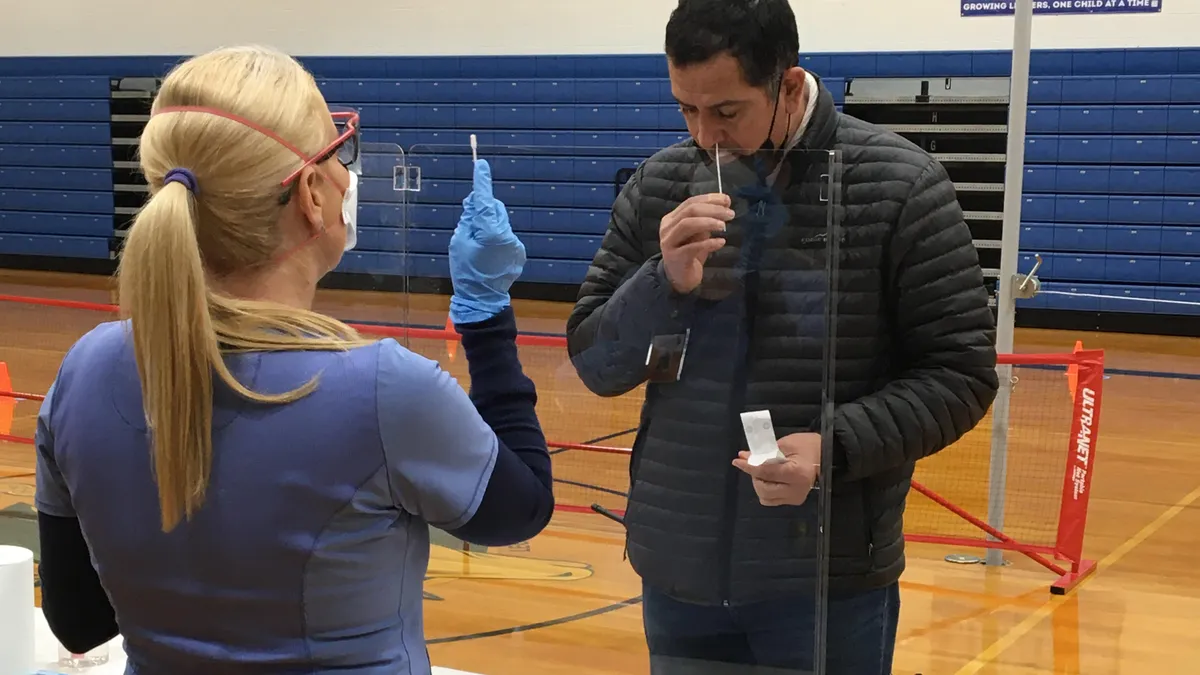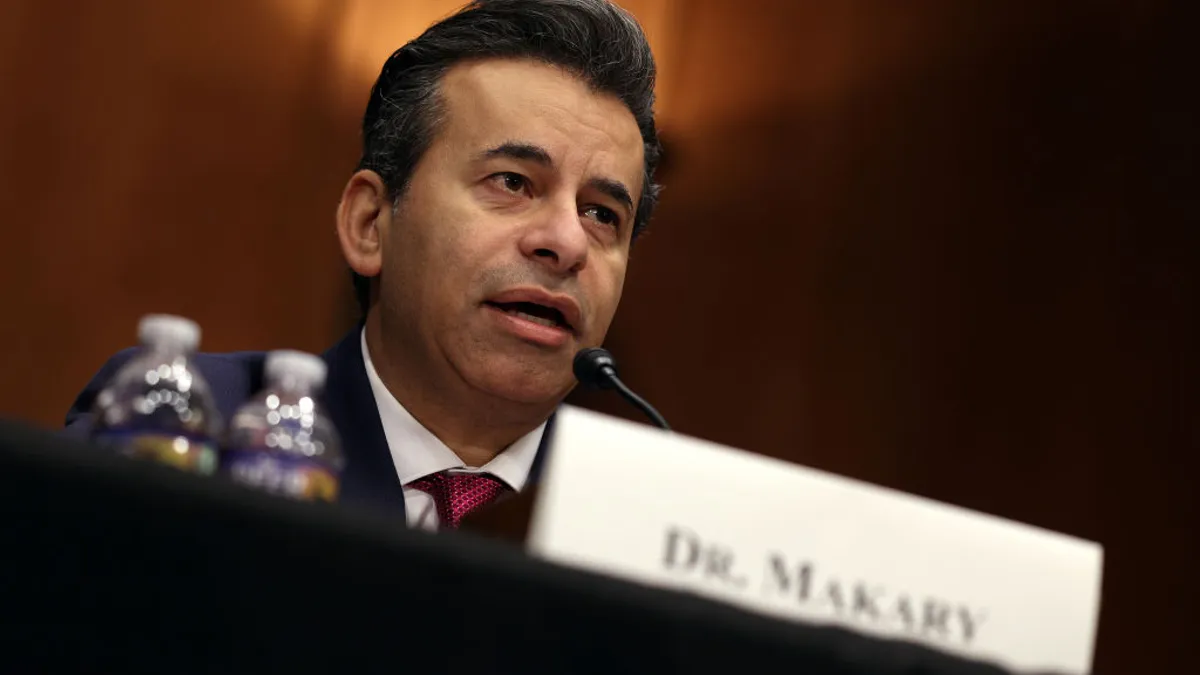Since the start of 2022, the FDA has issued a flurry of recent warnings about COVID-19 tests that have been illegally imported into the United States. The agency has seen an increase in this activity as the demand for at-home coronavirus diagnostics has increased, particularly with the surge in omicron cases in January and the Biden administration's efforts to ramp up the nation's testing capacity.
This illegal activity has also increased with the authorization of additional rapid COVID-19 home tests manufactured overseas, according to the FDA, where some test makers also distribute a coronavirus diagnostic that lacks the agency's authorization and may have a similar label or product name in Europe or other countries.
Acon Laboratories, Celltrion and SD Biosensor are among the companies that have been the subject of FDA's warnings to the U.S. public and healthcare providers not to use these products due to the risk of false test results that could potentially lead to serious illness and death.
In January, Acon issued a recall of non-EUA authorized Flowflex SARS-CoV-2 rapid tests from the U.S. market. The company's announcement said it "is not importing" the tests into the country "as it is only authorized for sale in Europe and other markets, under the CE mark," and is working with federal agencies to ensure that only its FDA-authorized COVID-19 antigen tests are distributed in the U.S.
"If you have received the 'Flowflex SARS-CoV-2 Antigen Rapid Test (Self-Testing)' with the blue box in the U.S. market, you should stop using this product and dispose of it. The product has not been approved, cleared, or authorized for use in the U.S.," Acon warned.
The European version of Celltrion's DiaTrust COVID-19 antigen test was similarly not approved for marketing in the U.S. but was illegally distributed, according to the FDA's recall notice. Celltrion said it sent "cease and desist" letters to distributors who were illegally distributing non-EUA product in the U.S. and "demanded return of all EU product from distributors' inventory" and removal from the country.
While the FDA says it has procedures in place to keep unauthorized, uncleared or unapproved tests from reaching the U.S. market, the agency's safety communications and the companies' own announcements point to a growing problem.
"The FDA works with U.S. Customs and Border Protection to identify shipments of FDA-regulated products, including COVID-19 tests, that do not appear to comply with the Federal Food, Drug, and Cosmetic Act. If the FDA believes items offered for entry at U.S. ports or offered for sale in the U.S. marketplace are not in compliance, the FDA will take appropriate action," an agency spokesperson said in an emailed statement to MedTech Dive.
Since the start of the pandemic, U.S. Customs and Border Protection has reported an increase in unapproved, counterfeit, or non-FDA compliant COVID-19 tests.
At the same time, however, the FDA's spokesperson acknowledged the difficulty in identifying these products is that some shippers, importers and distributors "provide inaccurate or false documents in their shipments that may describe the contents of their shipments as authorized by the FDA, when they have not been authorized, or as being used for research or investigational use only or other misinformation, when in reality the test is not intended for such use."
SD Biosensor's recall notice said the company "considers illegal importation to be a grave matter" and has initiated an investigation to determine how the product was illegally imported into the U.S. "If such illegal importations are discovered in the future, the responsible individuals/distributors will face strict legal action and liabilities for damages," according to SD Biosensor.
To prevent further attempts at illegal importation of unauthorized tests, the company said it is strengthening contract terms and enforcement with its distributors.
This week, the FDA issued Class I recalls for SD Biosensor's Standard Q COVID-19 Ag Home Test and Celltrion's DiaTrust COVID-19 Ag Rapid Test. While Celltrion recalled specific lots of its test due to a high number of false positive reports and unauthorized shelf life, the SD Biosensor test was classified as the most serious type of recall because it is not authorized, cleared, or approved by the FDA for marketing or distribution in the U.S.
SD Biosensor's recall, which was initiated Jan. 31, affected nearly 400,000 units, according to the FDA.
"This recall does not apply to the SD Biosensor COVID-19 At-Home Test (also an antigen test), which was authorized by the FDA on December 24, 2021, and is distributed by Roche Diagnostics," the agency's notice states.
The FDA this week also issued a Class I safety communication to stop using LuSys Laboratories' coronavirus antigen and antibody tests as their performance "has not been adequately established" and the agency believes there is likely a high risk of false results.
The tests may also be sold under the company names Luscient Diagnostics, Vivera Pharmaceuticals or with the trade name EagleDx, and were distributed for use in laboratories or for at-home testing, according to the FDA.



















